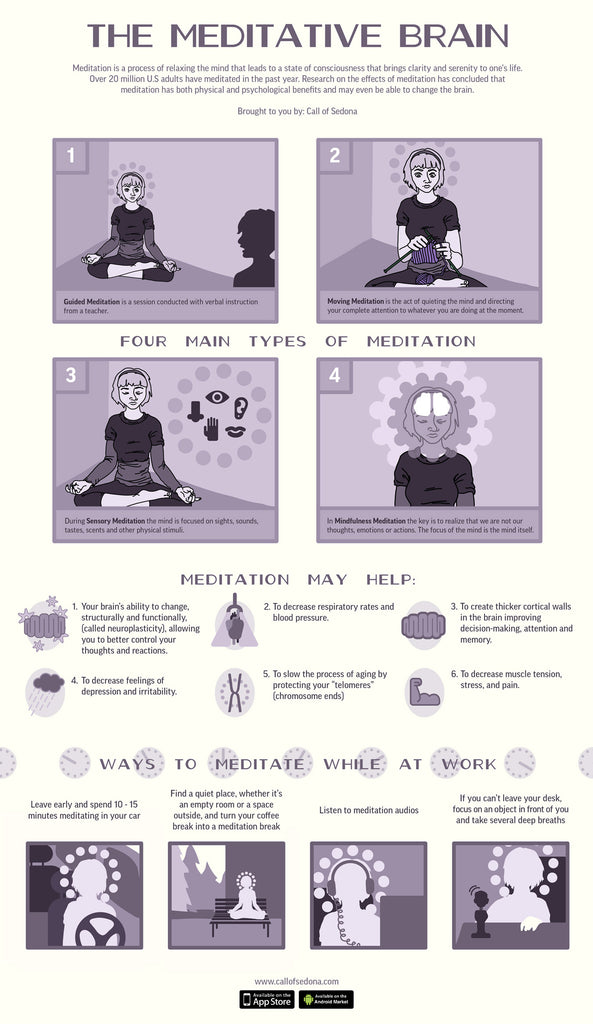
I've recently begun meditating as a way to relax the mind, but I've experienced a whole slew of benefits that I never expected.
As a pleasant surprise, meditation has been shown to help you focus, mitigate anxiety and depression, help you think more creatively, feel more compassionate, improve memory, and reduce stress.
This all sounds great (and it is!), but where do you begin so you can experience these positive effects for yourself?
For my own practice, I've started by building the habit of meditating daily (for at least 10 minutes) and have shared some tips for how you can get started as well. Let me say: Meditation. Is. Awesome.
What is meditation?
When I first heard of meditation it seemed a bit obscure and other-worldly. The practice conjured up images of sitting in a dark room bathed in candlelight with wisps of incense swirling about. But, it turns out meditation is really accessible -- no incense required.
At a basic level, meditation is a way to train the mind and cultivate mindfulness, but there are a broad variety of ways to practice.
I've chosen to begin with mindfulness meditation. In this practice, the goal is to become fully aware of the present moment, and I've started with Sam Harris' 9 minute guided meditation.
During this meditation, you concentrate on your breath, observing each inhalation and exhalation. The idea is to become aware of the thoughts, feelings and sensory stimuli around you. In Sam's words, "mindfulness is simply a state of open, nonjudgmental, and nondiscursive attention to the contents of consciousness, whether pleasant or unpleasant." Or, more simply, to be cognizant of what you think and feel, and to recognize this without judgment or active thought -- just experience it.
I like this practice because focusing on my breath gives me something tangible to concentrate on, which helps to keep me attuned and centered.
Benefits of meditation
I find that meditating clears my mind and lets me think unobtrusively about how I want to approach the day. I practice shortly after I wake up, before my mind gets cluttered with the days' activities. It puts me into a more positive mindset and allows me to key in on the priorities that I need to get done.
Interestingly, different types of meditation have varying benefits. In a study published in the journal Mindfulness, researchers analyzed three types of meditation practices and their effects:
- Mindful yoga was associated with greater increases in psychological well-being than the other two practices.
- Sitting meditation and mindful yoga were both associated with greater decreases in difficulties with emotion regulation than the body scan.
- Sitting meditation was associated with greater increases in the tendency to take a non-evaluative stance toward observed stimuli than the body scan.
And here is a nifty infographic that outlines additional benefits:

How to's
Here are some resources that I've found to be particularly helpful in starting out:
- Leo Babauta likes to call meditation one of the most powerful, and simple, things you can do. And it can take just two minutes. Here he provides an excellent jump off point to begin your practice
- Here are two guided meditations by Sam Harris
- Lifehacker has a useful guide, with plenty of resources, to help you get started as well
Is meditation for you?
There's only one way to find out! We challenge you to meditate for 2 minutes a day for 7 days straight. We know you'll find it enlightening ;)
And once you've done so, we'd love to hear about your experience!
As you know, here at CogniTea, we want to hear about what inspires you, what moves you, or what you're working towards. If you're an avid meditator or just getting started, share your advice, questions or insights in the comments below or on Facebook!




